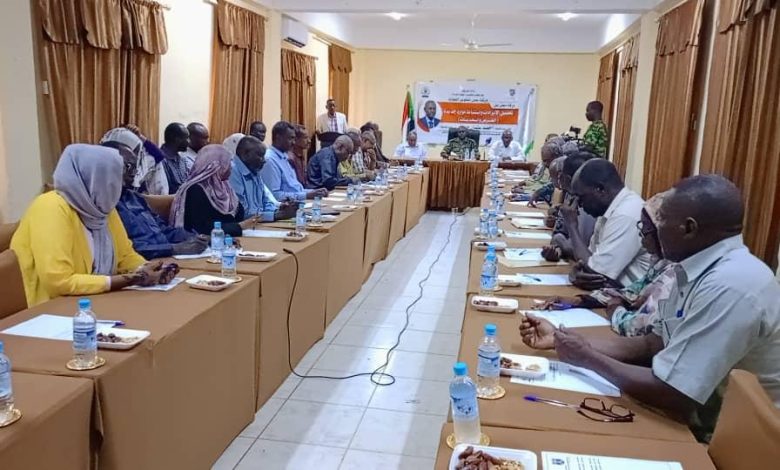Economic
Khartoum Seeks Solutions for Financial Revenues

Sudan Events – Agencies
Khartoum State organized a workshop on Tuesday to find solutions to the financial resource challenges following the cessation of budget financing sources due to the war. Governor of Khartoum, Ahmed Othman Hamza, stated that the rebel militias have destroyed the industrial, commercial, agricultural, livestock, and service sectors, leading to a loss of revenue streams, which significantly affected the state budget that largely depended on the revenues from activities in Khartoum State, considered the center of gravity for all productive activities. The Unified Revenue Development and Collection Agency organized the workshop, presenting a main working paper titled “Revenue Collection and Identifying New Resources (Opportunities and Challenges).” The workshop was attended by members of the Khartoum State Government, financial and revenue agencies, accounting bodies, and the administrative expert in local governance, Mohamed Mustafa Qasem Allah, the former Secretary-General of the Khartoum State Government. Governor Hamza emphasized that the state is determined to operate all its agencies, even at a minimal level, to fulfill its duties to citizens. This requires considering non-traditional solutions to obtain funds. He stressed the importance of accurately identifying revenue streams that do not overburden citizens, traders, and business owners who have lost their savings due to the war. He pointed out that the workshop’s outcomes would be immediately implemented. The main working paper indicated that the ongoing war has halted resources and that one of the main challenges in obtaining resources is the potential to restore commercial, industrial, and service activities and related electronic systems for collection. The paper, presented by Aref Khalil, Director of the Resource Collection Agency, called for urgent solutions to provide funds enabling Khartoum State to continue financing services. The workshop participants emphasized that life should not stop because of the war and that there must be a strong will to work. Accordingly, they proposed several activities that could offer practical solutions and quickly generate revenue, particularly in service and investment activities, the development of markets and land ports, and the allocation of these activities’ revenues to developmental service projects.



